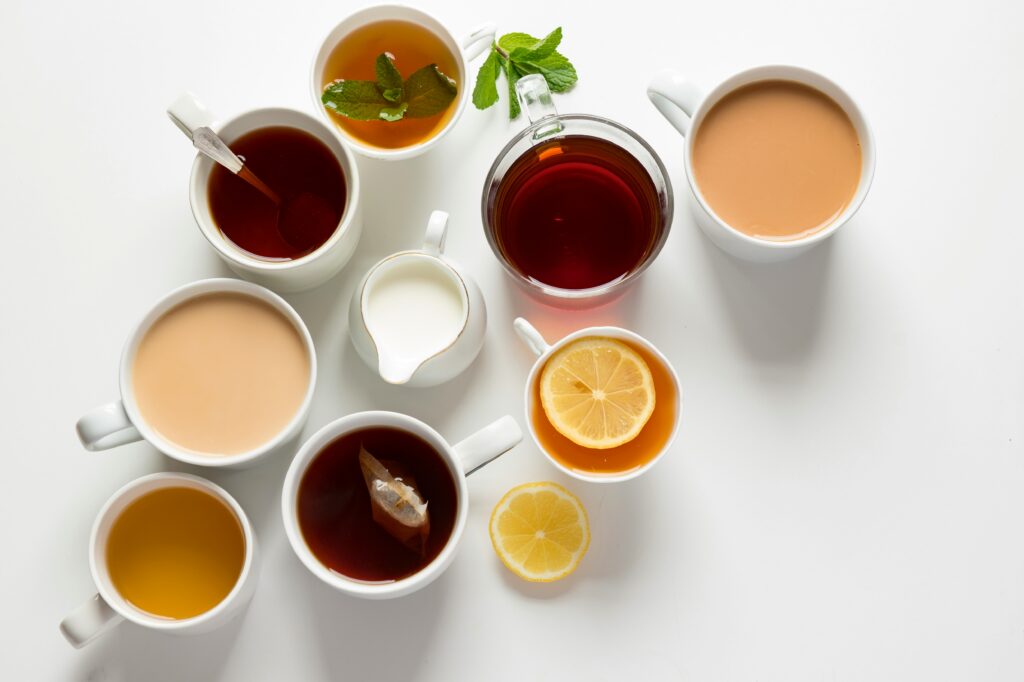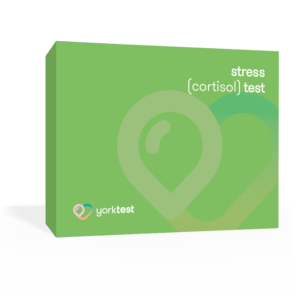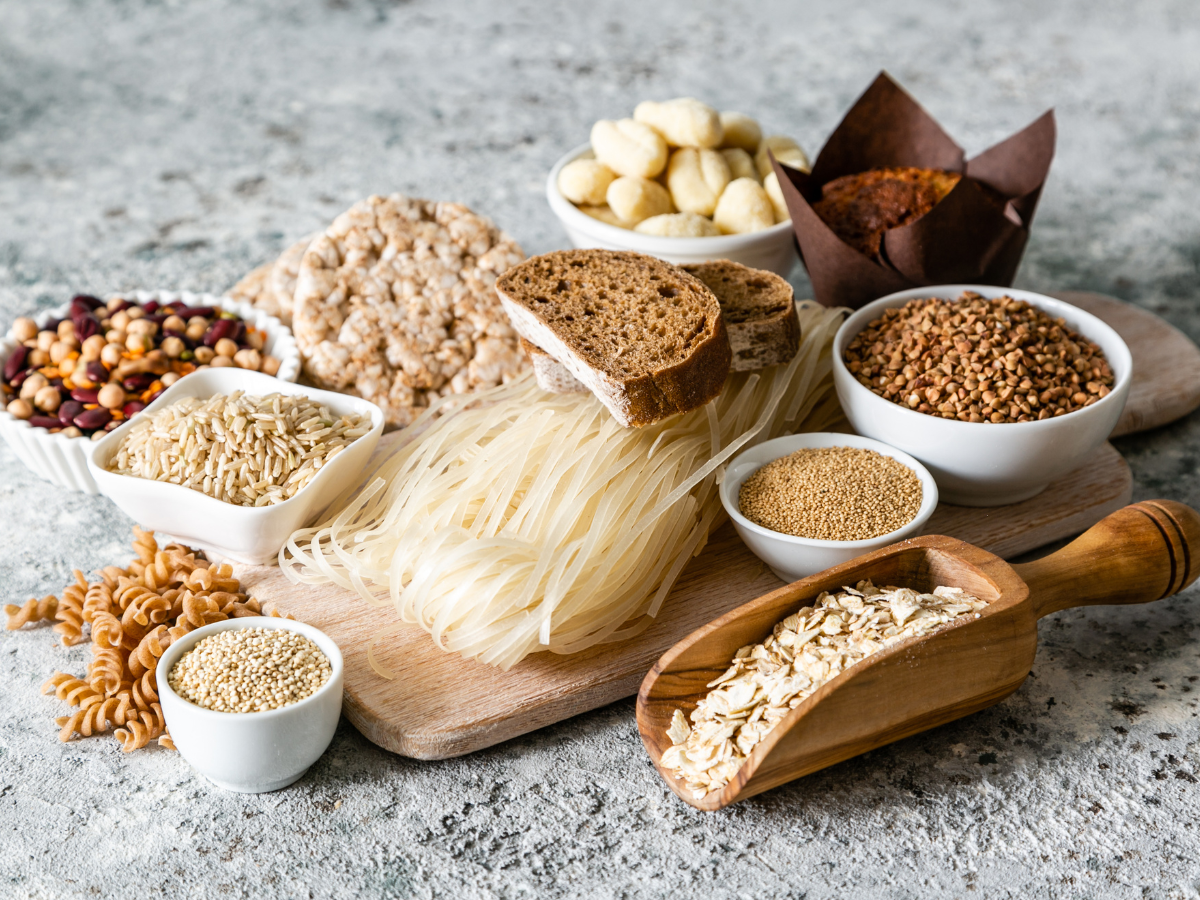Tea is one of the most widely consumed beverages in the world, and for good reason. In the UK, over 19 million people drink tea (whether that’s black, herbal or green) at least once per day!Â
All true teas – white, green, oolong, and black – are derived from the leaves of the Camellia sinensis plant: an evergreen shrub that’s native to East Asia. In ancient China, tea was predominately used as a medicinal drink as it was believed to aid in lowering blood pressure and reducing pain. In the modern world, India and China are the major producers of tea, but it is of course produced all over the world, resulting in many different varieties and flavours. The different varieties of tea are a result of varying degrees of oxidation and processing methods applied to the freshly harvested leaves. However, regardless of the type, all types of tea come with their own unique health benefits.
Benefits of Drinking Tea Daily
There are many health benefits to drinking tea, but its true power depends on developing a daily tea-drinking habit because even a single cup of tea each day can provide significant benefits that accumulate over time.
One of the key advantages of drinking tea daily is improved hydration. Tea, especially when consumed without added sugars or milk, can contribute to your daily fluid intake, which helps to maintain the body’s proper hydration levels.
Each cup of tea you consume also offers a concentrated dose of antioxidants. These help to neutralise harmful free radicals in the body, reducing oxidative stress and potentially lowering the risk of chronic diseases like cancer, heart disease, and diabetes. When drunk regularly, the full list of tea benefits include the following:
- Rich in antioxidants that help to protect cells from damage.
- Potential cancer-fighting properties.
- May lower risk of type 2 diabetes.
- Anti-aging properties that protect skin.
- Hydrating, especially when consumed without additions.
- Low in calories when unsweetened.
- May reduce inflammation in the body.
- Improves sleep quality.
The Antioxidant Power of Tea
Tea in all its varieties is a rich source of powerful antioxidants. Antioxidants are nature’s way of fighting off harmful molecules that are known as free radicals. These are unstable compounds that can wreck our cells, contributing to oxidative stress and potentially accelerating the ageing process. On the other hand, antioxidants act as a defence mechanism, neutralising free radicals and protecting our cells from damage.
The importance of antioxidants for our health cannot be overstated. By minimising oxidative stress, they help in reducing inflammation, which is an underlying factor in many chronic diseases. Additionally, antioxidants help to safeguard our DNA from damage, which could lower the risk of certain cancers and age-related diseases.
Green tea is particularly abundant in antioxidants known as catechins, with epigallocatechin gallate (EGCG) being the most potent. These compounds have been extensively studied for their potential to combat inflammation, support heart health, and even aid in weight management.Â
Black tea is the most commonly consumed variety worldwide, and is also a rich source of antioxidants (including theaflavins and thearubigins). These compounds are formed during the oxidation process that gives black tea its distinctive flavour and colour. Research suggests that black tea may help reduce the risk of strokes, cardiovascular disease and heart disease.Â
Oolong tea falls somewhere between green and black tea, and is partially oxidised. It contains a blend of antioxidants from both categories which link to potential benefits like improved bone health, higher metabolism and protection against certain neurodegenerative diseases.
What Else is in Tea?
As well as containing antioxidants (called polyphenols, including flavonoids and catechins) tea also contains caffeine, which is a natural stimulant that can give a small boost of energy. However, the level of caffeine depends on the variety of tea, with black teas generally containing higher levels than green or white teas.Â
Tea is also a source of various vitamins, minerals, and amino acids, such as vitamin C, manganese, potassium, and L-theanine – an amino acid associated with relaxation.
Tea for Stress Relief and Relaxation
The simple act of brewing and sipping a warm cup of tea can provide a much-needed respite from the pressures of daily life. But it is also the chemical composition of tea which gives it the ability to relax our body and mind.
One of the key compounds that’s responsible for tea’s soothing effects is L-theanine: an amino acid found almost exclusively in tea leaves. L-theanine has been shown to stimulate the production of alpha brain waves, which are associated with a state of wakeful relaxation. It works alongside the caffeine present in the tea, and provides a gentle boost in focus and alertness without the jittery side effects that are often experienced with coffee!
In addition to L-theanine, tea is also rich in polyphenols: antioxidants that have been linked to a range of health benefits, including reducing inflammation and oxidative stress. Chronic inflammation and oxidative stress are known to contribute to stress related conditions like anxiety and insomnia. The polyphenols in tea are able to ease both physical and emotional manifestations of stress.
The Healthiest Teas to Drink
When it comes to selecting the healthiest teas to drink, it’s tough to know which type to go for. Whether it’s green or black, each type has its own list of health benefits.
1 .Green Tea
Originating in ancient China, green tea has been a staple in traditional medicine for centuries. Unlike its counterparts, green tea leaves are minimally oxidised, preserving their vibrant green hue and high concentration of antioxidants, particularly epigallocatechin gallate (EGCG). Studies have linked the consumption of green tea to a reduced risk of cardiovascular disease, including cholesterol metabolism, which can be a risk for developing heart disease. Green tea’s anti-inflammatory properties may also help protect against certain cancers and neurodegenerative diseases.Â
2. Black Tea
Black tea comes from the same Camellia sinensis plant as its green counterpart. It is rich in antioxidants (theaflavins and thearubigins) and has been linked to improved gut health, better immune function and reduced inflammation. Drinking black tea regularly can also support your heart health by lowering cholesterol levels and improving blood vessel function.Â
3. Herbal Teas
Herbal teas, also known as tisanes, are caffeine-free infusions created by combining various herbs, spices and fruits. For example, chamomile tea is well known for aiding sleep, since it contains a compound called apigenin, which has slight sedative effects. Ginger tea is another super tea to drink. It can soothe digestive issues and reduce inflammation. It contains two main compounds (gingerols and shogaols) that can help with nausea, arthritis and pain too.Â
The most popular types of herbal teas are:
- Peppermint tea
- Ginger tea
- Chamomile tea
- Lemon tea
- Fennel tea
- Hibiscus tea
- Chai
- Mint tea
- Spearmint tea
Common Tea-Related Questions
How many cups of tea a day is recommended?
While there is no definitive consensus on the optimal number of cups, most experts recommend consuming two to four cups of tea per day to reap the maximum benefits. But it’s important to consider your own individual caffeine sensitivity and hydration needs. If you’re sensitive to caffeine, it may be best to limit your intake to one or two cups daily, especially in the evening hours.Â
Does tea raise blood pressure?
Contrary to popular belief, tea itself does not directly raise blood pressure. In fact, certain types of tea, such as green and hibiscus, have been associated with potential blood pressure-lowering effects due to their antioxidant content and ability to promote vasodilation (widening of blood vessels). However, it’s important to note that adding excessive amounts of milk or sugar to your tea can potentially contribute to increased blood pressure levels!
How much caffeine is in tea?
While tea does contain caffeine, the amount varies significantly across different varieties, and is still much less than what you’d find in a cup of coffee instead. Black tea generally has the highest caffeine content (around 40 mg per cup), followed by oolong, green, and white teas. Herbal teas, on the other hand, are naturally caffeine-free. If you’re sensitive to caffeine or prefer to avoid it altogether, herbal teas are a great alternative.
Does tea have calories?
In its purest form, unsweetened tea is virtually calorie-free. However, as soon as you add milk, sugar, honey or other sweeteners the calorie count goes up. For example, a cup of black tea without any additions contains only 2-3 calories, while the same cup with a tablespoon of honey and milk can easily reach 50-100 calories or more!













